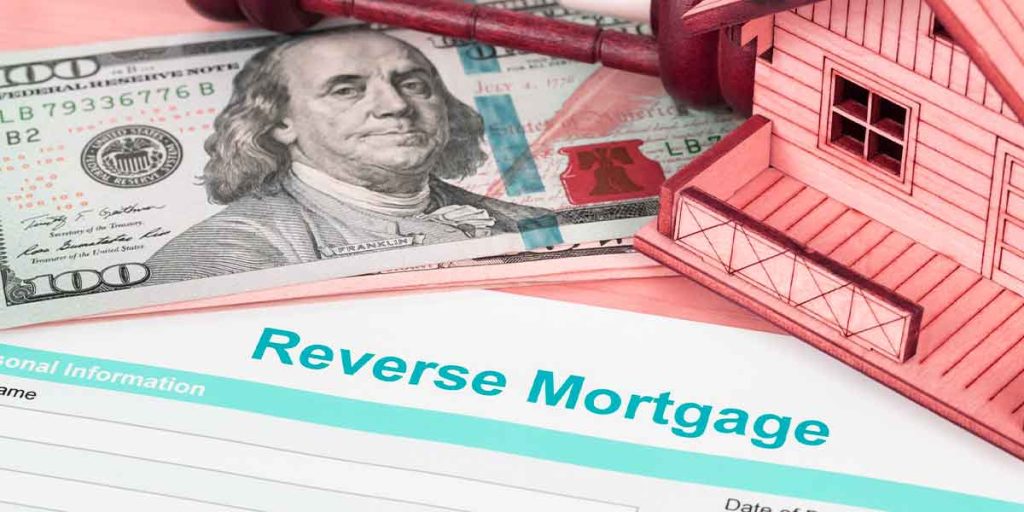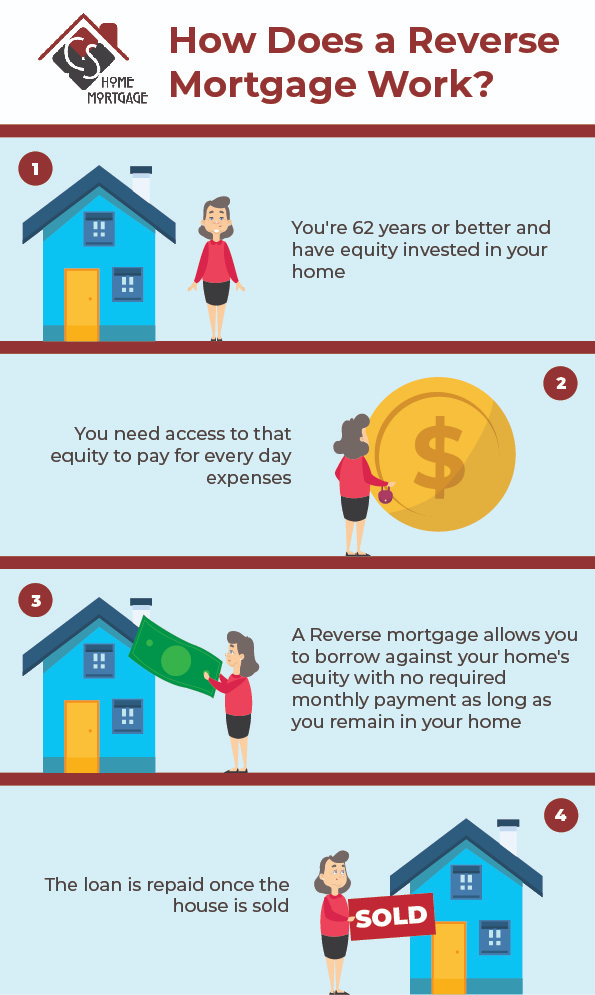Empower Your Retired Life: The Smart Method to Acquisition a Reverse Home Mortgage
As retirement approaches, many people seek reliable methods to enhance their economic self-reliance and wellness. Amongst these methods, a reverse mortgage arises as a feasible choice for house owners aged 62 and older, allowing them to take advantage of their home equity without the necessity of monthly settlements. While this financial device offers numerous advantages, consisting of enhanced cash money flow and the possible to cover necessary expenses, it is crucial to understand the details of the application process and crucial factors to consider involved. The following steps may expose just how you can make a knowledgeable choice that might dramatically impact your retirement years.
Understanding Reverse Mortgages
Comprehending reverse home mortgages can be critical for homeowners seeking financial versatility in retirement. A reverse home loan is an economic item that permits qualified home owners, commonly aged 62 and older, to convert a section of their home equity right into money. Unlike standard home loans, where consumers make monthly payments to a lender, reverse mortgages make it possible for property owners to get payments or a lump sum while preserving possession of their residential or commercial property.
The amount readily available via a reverse home loan depends upon numerous elements, consisting of the house owner's age, the home's value, and current passion prices. Significantly, the funding does not need to be repaid up until the house owner sells the home, vacates, or passes away.
It is vital for potential borrowers to recognize the ramifications of this financial item, consisting of the effect on estate inheritance, tax obligation considerations, and recurring obligations related to home maintenance, tax obligations, and insurance coverage. In addition, counseling sessions with accredited professionals are often called for to make sure that consumers completely comprehend the terms and problems of the lending. On the whole, a comprehensive understanding of reverse mortgages can equip homeowners to make educated decisions about their monetary future in retirement.
Benefits of a Reverse Home Mortgage
A reverse home loan supplies a number of engaging advantages for eligible home owners, particularly those in retired life. This financial tool permits seniors to transform a portion of their home equity right into cash money, offering crucial funds without the demand for regular monthly home mortgage payments. The cash gotten can be used for numerous purposes, such as covering medical costs, making home renovations, or supplementing retired life income, hence enhancing general monetary versatility.
One substantial benefit of a reverse home mortgage is that it does not require repayment until the house owner relocates out, offers the home, or passes away - purchase reverse mortgage. This function makes it possible for retirees to preserve their way of living and satisfy unforeseen costs without the concern of monthly repayments. Furthermore, the funds gotten are generally tax-free, enabling property owners to use their money without concern of tax obligation ramifications
Furthermore, a reverse mortgage can offer satisfaction, knowing that it can work as an economic safety and security web throughout difficult times. House owners likewise maintain ownership of their homes, ensuring they can proceed staying in a familiar environment. Ultimately, a reverse home mortgage can be a critical funds, empowering retired people to handle their financial resources efficiently while appreciating their golden years.
The Application Process
Navigating the application process for a reverse home mortgage click this site is a crucial step for home owners considering this economic alternative. The very first phase includes assessing qualification, which commonly needs the house owner to be at least 62 years of ages, own the residential property outright or have a low home mortgage balance, and inhabit the home as their primary house.
When qualification is verified, property owners should undergo a therapy session with a HUD-approved therapist. This session makes sure that they completely understand the ramifications of a reverse home mortgage, including the responsibilities involved. purchase reverse mortgage. After finishing therapy, candidates can proceed to collect necessary documents, including proof of revenue, assets, and the home's value
The following step involves sending an application to a lender, who will certainly assess the monetary and building qualifications. An evaluation of the home will also be conducted to identify its market price. If accepted, the lender i thought about this will provide lending terms, which need to be assessed thoroughly.
Upon acceptance, the closing procedure adheres to, where final files are signed, and funds are disbursed. Comprehending each stage of this application procedure can considerably improve the house owner's self-confidence and decision-making regarding reverse mortgages.

Key Considerations Before Buying
Acquiring a reverse home loan is a significant economic decision that calls for mindful factor to consider of several vital aspects. Assessing your economic needs and objectives is similarly important; figure out whether a reverse mortgage lines up with your long-lasting plans.

Furthermore, analyze the effect on your current way of life. A reverse home loan can impact your qualification for sure federal government advantages, such as Medicaid. Finally, seek expert support. Consulting with a financial advisor or a housing counselor can offer important insights customized to your specific conditions. By extensively evaluating these considerations, you can make a more informed choice concerning whether a reverse home mortgage is the appropriate financial technique for your retirement.
Taking advantage of Your Funds
Once you have safeguarded a reverse home loan, efficiently handling the funds click for info ends up being a priority. The adaptability of a reverse home mortgage permits homeowners to use the funds in numerous means, however tactical planning is essential to optimize their benefits.
One key strategy is to produce a budget that describes your economic goals and month-to-month expenses. By recognizing required expenditures such as health care, real estate tax, and home upkeep, you can designate funds as necessary to make sure long-term sustainability. Furthermore, consider utilizing a section of the funds for investments that can create income or value over time, such as dividend-paying supplies or common funds.
One more vital aspect is to preserve an emergency situation fund. Reserving a reserve from your reverse home loan can aid cover unexpected expenses, giving satisfaction and financial security. Furthermore, speak with an economic advisor to check out possible tax obligation ramifications and exactly how to incorporate reverse home mortgage funds right into your overall retirement technique.
Eventually, sensible management of reverse home mortgage funds can enhance your monetary safety and security, permitting you to appreciate your retired life years without the stress of monetary unpredictability. Cautious preparation and educated decision-making will certainly guarantee that your funds work properly for you.
Conclusion
To conclude, a reverse home loan offers a feasible economic method for senior citizens looking for to boost their retired life experience. By converting home equity into obtainable funds, individuals can address necessary expenditures and safe extra funds without sustaining month-to-month settlements. Nonetheless, cautious factor to consider of the linked terms and implications is important to make best use of advantages. Inevitably, leveraging this financial device can help with better self-reliance and improve overall top quality of life during retirement years.
Comprehending reverse home mortgages can be essential for homeowners seeking monetary flexibility in retired life. A reverse home mortgage is a monetary item that permits eligible property owners, generally aged 62 and older, to convert a section of their home equity right into money. Unlike traditional mortgages, where consumers make regular monthly repayments to a lending institution, reverse home loans make it possible for property owners to obtain settlements or a lump sum while maintaining possession of their building.
On the whole, a comprehensive understanding of reverse home loans can equip home owners to make enlightened choices concerning their economic future in retired life.
Seek advice from with an economic advisor to explore possible tax obligation effects and just how to incorporate reverse home loan funds right into your general retirement technique.